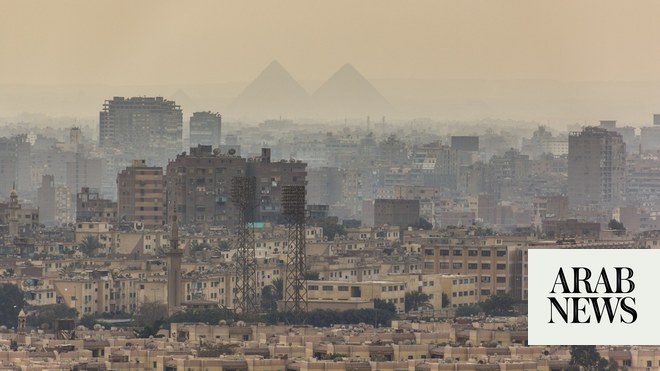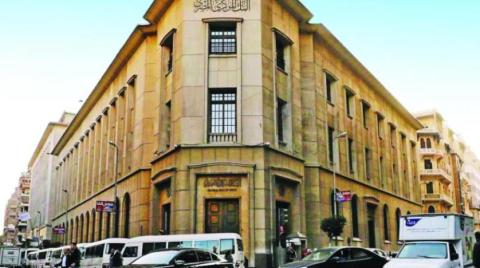
RIYADH: Egypt’s net foreign assets fell by 109.9 billion Egyptian pounds ($4.47 billion) in October, extending a decline that began in September 2021, central bank data showed.
The decrease works out to about $228 million after calculating for devaluations during October, Reuters reported.
NFAs represent banking system assets that are owned by its non-residents minus liabilities, and foreign assets held by the central bank. Egypt has been relying on its NFAs to steady its devaluing currency.
Egypt has been facing a currency crisis following Russia"s invasion of Ukraine in February, prompting the North African country to begin negotiating with the International Monetary Fund for a financial assistance package.
In October, the IMF agreed to a 46-month, $3 billion Extended Fund Facility with Egypt, welcoming a move to “durable exchange rate flexibility” and commitments to boosting social protections, according to Reuters.
The arrangement was aimed at catalyzing a large multi-year financing package, including about $5 billion in the financial year ending in June 2023, reflecting broad international and regional support for Egypt, the IMF said in a statement.
The Central Bank of Egypt in October had been allowing the pound to fall in increments of about 0.01 pounds per working day, but on Oct. 27 devalued it by 14.5 percent in one go as part of the $3 billion support package it concluded with the IMF last month.
NFAs fell to a negative 551.0 billion pounds at the end of October from a negative 441.1 billion pounds a month earlier, according to the central bank data.
NFAs stood at a positive 248 billion pounds in September 2021, before the decline began. Russia"s invasion of Ukraine in February sparked further investor unease, unleashing an even bigger flood of outflows.
Changes in the amount of NFAs represent net transactions of the banking system with the foreign sector, including those of the central bank, according to the bank.
On Nov. 29, Saudi Arabia extended the term for a $5 billion deposit the Kingdom made to Egypt’s central bank in March after the North African country came under increasing financial pressure following Russia’s invasion of Ukraine, Saudi Press Agency reported.
This came as the two countries want to enhance coordination, especially with regard to pumping numerous investments in foreign currencies into the Egyptian market in addition to Saudi deposits, SPA said.
It is hoped that these investments will contribute to opening new funding channels with regional and international organizations, SPA added.












